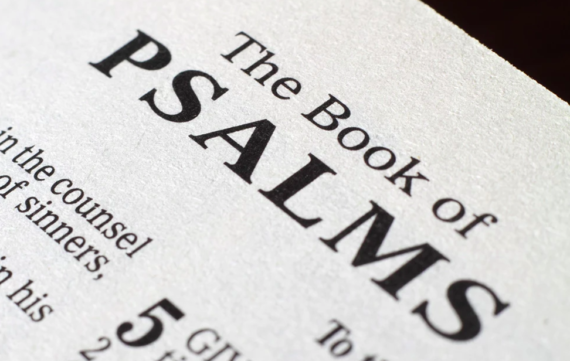In the early church this psalm was associated with the coming of the Magi because it calls “all the earth” to praise God (1). Yet, its contents are of a national (5-12) and a personal nature (13-15). Nothing is said of any of God’s good gifts to other peoples. One is, however, expected to draw a parallel from the life of Israel, and the life of this unidentified individual, to others living in different situations. We are to call others to worship based on the blessings we have received as individuals and as members of a blessed people.
Like Psalm 65, this is a call to worship. This call to praise is based on the deliverance of Israel and the deliverance of the individual psalmist.
National deliverance
The national deliverance is placed first.






“Come and see what God has done: he is awesome in his deeds toward the children of man. 6He turned the sea into dry land; they passed through the river on foot. There did we rejoice in him, 7 who rules by his might forever, whose eyes keep watch on the nations— let not the rebellious exalt themselves” (5-7).
Does this indicate that we should normally put the group before the individual? In the Western world, we normally put the individual first. Putting the group first is often considered ethnocentric.
It is not ethnocentric pride on the part of this writer to call on others to notice how God has dealt with Israel. It would be if the implication were that he did so because they deserved deliverance. They do not deserve deliverance, as they were to be constantly reminded (Dt 9:6). The focus here is not on Israel at all, but on the actions of God. This is not a triumphalistic prosperity gospel. The trials of the nation are not ignored (10). They have been tried to the extremes (fire and water, 11-12) Their perseverance through the trials is not attributed to their goodness, but is acknowledged as a gift of God (12)
Personal deliverance
Personal deliverance is cited next. Personal deliverance is acknowledged by worship, and others are to be invited to hear this worship so that they may be led to worship.
“I will come into your house with burnt offerings; I will perform my vows to you, 14 that which my lips uttered and my mouth promised when I was in trouble. I will offer to you burnt offerings of fattened animals, with the smoke of the sacrifice of rams; I will make an offering of bulls and goats. 16 Come and hear, all you who fear God, and I will tell what he has done for my soul” (13-16).
This psalm leads to certain conclusions. Both the corporate and the personal aspects of praise must be acknowledged. Our praises should include both “I” and “we.”
In any monotheistic faith, praise naturally calls on others to join. Monotheistic faith is, by logical necessity, evangelistic. Wherever there is not praise there must be evangelism. Wherever there is imperfect praise, there must be edification to perfect our praise. Where there is little or no awareness of deliverance from sin, it will be difficult to get people to worship, but where there is such an awareness, nothing will stop the worshipper.
So, the objective of evangelistic work is to make people more aware of their need and of God’s deliverance, not to dress up the church in an attractive fashion. In fact, admission of the church’s shortcomings, admission of our inability to save ourselves, is fundamental to our worship and our evangelism. Having become aware of our need, we ought to worship with exuberance — “shout for joy to God” or “make a joyful noise” (1).

